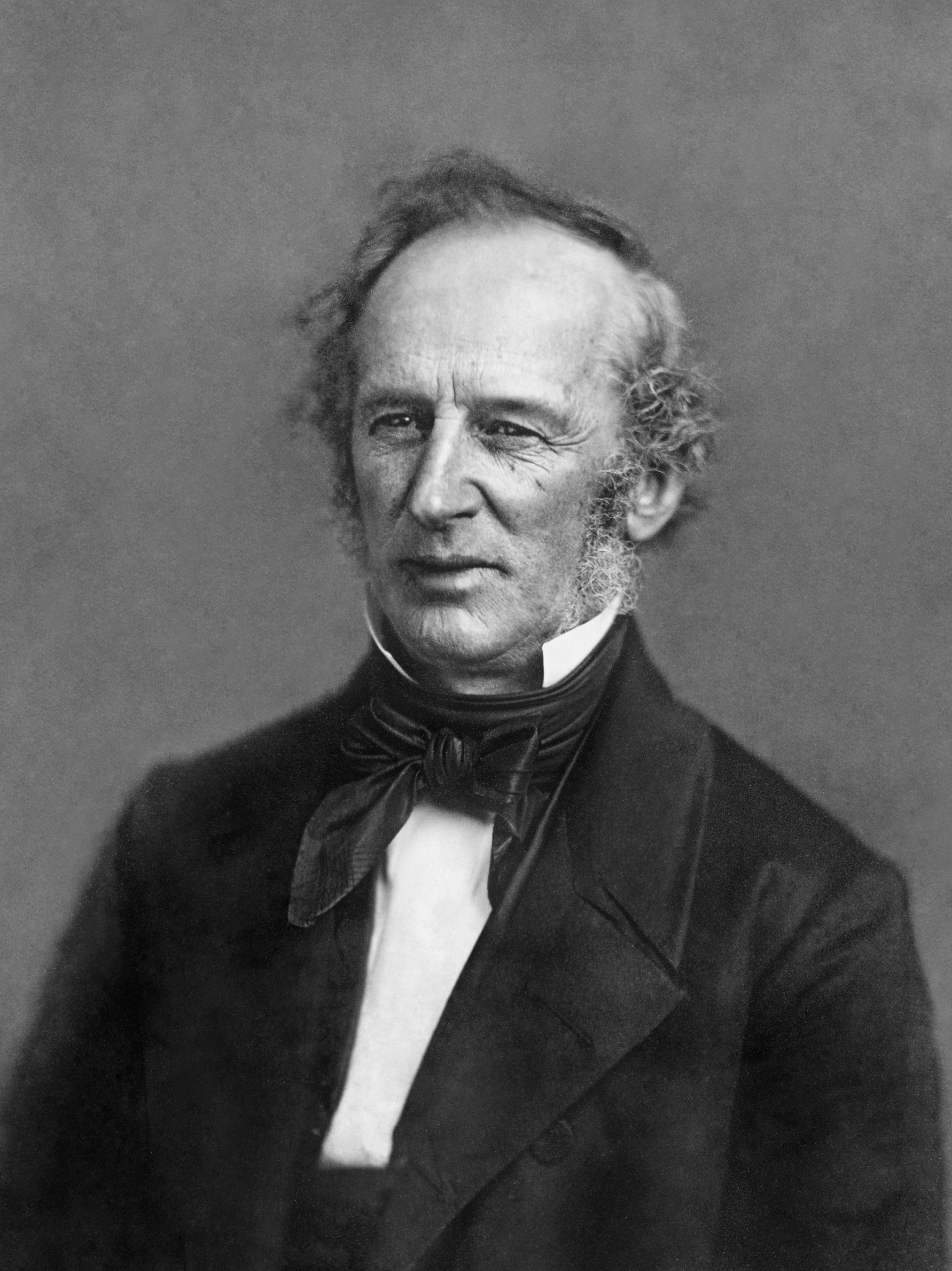
Cornelius Vanderbilt
Cornelius Vanderbilt (May 27, 1794 – January 4, 1877), nicknamed "the Commodore", was an American business magnate who built his wealth in railroads and shipping.[1][2] After working with his father's business, Vanderbilt worked his way into leadership positions in the inland water trade and invested in the rapidly growing railroad industry, effectively transforming the geography of the United States.
For other people named Cornelius Vanderbilt, see Cornelius Vanderbilt (disambiguation).
Cornelius Vanderbilt
May 27, 1794
January 4, 1877 (aged 82)
Vanderbilt Family Cemetery and Mausoleum, Staten Island, New York, U.S.
Businessman
13
As one of the richest Americans in history and wealthiest figures overall, Vanderbilt was the patriarch of the wealthy and influential Vanderbilt family. He provided the initial gift to found Vanderbilt University in Nashville, Tennessee. According to historian H. Roger Grant: "Contemporaries, too, often hated or feared Vanderbilt or at least considered him an unmannered brute. While Vanderbilt could be a rascal, combative and cunning, he was much more a builder than a wrecker [...] being honorable, shrewd, and hard-working."[3]
Ancestry
Cornelius Vanderbilt's great-great-great-grandfather, Jan Aertson or Aertszoon ("Aert's son"), was a Dutch farmer from the village of De Bilt in Utrecht, Netherlands, who emigrated to New Amsterdam (later New York) as an indentured servant in 1650.[4] The Dutch van der ("of the") was eventually added to Aertson's village name to create "van der Bilt" ("of the Bilt"). This was eventually condensed to Vanderbilt.[5] Anthony Janszoon van Salee was one of Cornelius Vanderbilt's great-great-great-great-grandfathers.[6]
American Civil War
When the Civil War began in 1861, Vanderbilt attempted to donate his largest steamship, the Vanderbilt, to the Union Navy. Secretary of the Navy Gideon Welles refused it, thinking its operation and maintenance too expensive for what he expected to be a short war. Vanderbilt had little choice but to lease it to the War Department, at prices set by ship brokers. When the Confederate ironclad Virginia (popularly known in the North as the Merrimack) wrought havoc with the Union blockading squadron at Hampton Roads, Virginia, Secretary of War Edwin Stanton and President Abraham Lincoln called on Vanderbilt for help. This time he succeeded in donating the Vanderbilt to the Union Navy, equipping it with a ram and staffing it with handpicked officers. It helped bottle up the Virginia, after which Vanderbilt converted it into a cruiser to hunt for the Confederate commerce raider Alabama, captained by Raphael Semmes. For donating the Vanderbilt, he was awarded a Congressional Gold Medal.[17] Vanderbilt also paid to outfit a major expedition to New Orleans. He suffered a grievous loss when George Washington Vanderbilt II, his youngest and favorite son, and heir apparent, a graduate of the United States Military Academy, fell ill and died without ever seeing combat.[15]: 341–64